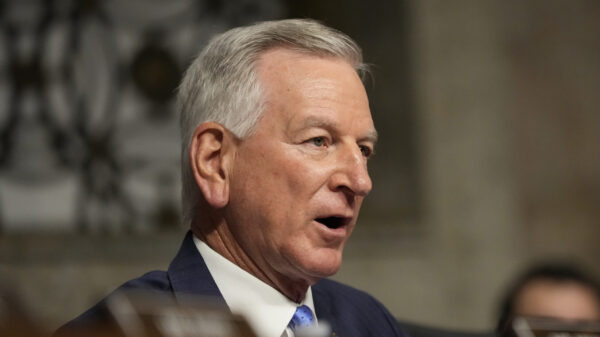By George Clark
President, Manufacture Alabama
Last month, a U.S. House science committee hearing on President Obama’s proposed greenhouse gas rules was interrupted when the lights in the room went out.
The irony was lost on no one.
If the Environmental Protection Agency’s regulations limiting carbon dioxide emissions are implemented, the result could be a slow-motion power failure for the United States.
The EPA’s rules will make it harder to produce energy and more expensive to buy it. This will mean fewer jobs for our workers and higher prices for their families.
My organization, Manufacture Alabama, represents hundreds of companies of all sizes and types. They create the technology, infrastructure and products that power our economy and, yes, protect the environment.
We already start at a disadvantage. High corporate tax rates and burdensome federal regulations make it significantly more expensive to manufacture in the U.S. than overseas.
But we enjoy a competitive edge in one area — energy. It’s abundant, cheap and reliable. This is especially true in states like Alabama, which rely on plentiful coal and inexpensive natural gas.
The EPA plan calls for a 30 percent cut in greenhouse gases by 2030. It would artificially and arbitrarily cap carbon dioxide emissions in Alabama and every other state, even during peak summer and winter months.
According to the National Mining Association, “Over 20 percent of the country’s coal-powered electricity [would be] removed from the energy grid by 2020, if not sooner.”
Recently, Alabama Power announced it would retire two coal-fired units and convert other units to natural gas. Jobs will be lost. So will power. These facilities were needed last winter to meet peak usage demands.
Americans insist on reliable energy. Coal currently meets about 40 percent of our energy needs. It doesn’t take a scientist to do the math.
There are other unintended consequences. The chemical industry is a major user of natural gas. Their products are the building blocks of nearly all manufacturing. When gas is diverted to replace coal, everything from toothpaste to automobiles will be affected.
Nationwide, the EPA regulations could cost 224,000 jobs annually and reduce GDP by over $50 billion a year, according to a U.S. Chamber of Commerce study.
“Regions of the country such as the South and Alabama will be more dramatically and adversely impacted,” wrote Gov. Robert Bentley in a letter to the EPA.
We’re already seeing the effects. The National Association of Manufacturers (NAM) has found a drastic reduction in construction permits caused in part by uncertainty related to the new rules. The group also predicts a cutoff of research and development investment in, of all things, environmental technology.
In the cruelest irony of all, by ceding energy production to high-polluting nations, we make it harder — not easier — to protect Planet Earth.
Climate change is a global challenge that calls for a global solution. China alone accounts for about one-fourth of the world’s CO2 emissions. A single coal plant in Taiwan emits more carbon dioxide than the country of Switzerland. Russia is in talks to build an even larger one.
President Obama told the United Nations last month that “there does not have to be a conflict between a sound environment and strong economic growth.”
He’s right. America has proven it by reducing carbon emissions to their lowest levels in 20 years — without the new EPA regulations.
But wouldn’t these regulations help us do even better? Not exactly. The EPA plan will “not impact the climate in any meaningful way,” testified Charles McConnell, President Obama’s assistant secretary of energy from 2011 to 2013.
And yet, he said, Americans on average will pay double for power, and in the top electricity-producing states like Alabama, “three times or four times more.”
Faced with growing public opposition, the EPA has extended the comment period to Dec. 1.
We urge the agency to use the time wisely by ending its micromanagement of energy and industry.
We ask that it “recognize the limits of federal authority,” as suggested by Gov. Bentley and 14 other governors.
We ask that it finally conduct a real world cost-benefit and economic sustainability analysis.
And we ask that the EPA not attempt to achieve through regulation what it could not by legislation — namely, an unpopular “cap-and-trade” bill.
At the U.N., President Obama pledged to “answer the call” on climate change. He’s also promised an “all-of-the-above” energy strategy.
The EPA’s plan achieves neither. And all Americans, manufacturers and consumers alike will likely pay the price.
Manufacture Alabama is the state’s sole trade association dedicated exclusively to the competitive, legislative, regulatory and operational issues of manufacturers and their partner industries and businesses.



















































